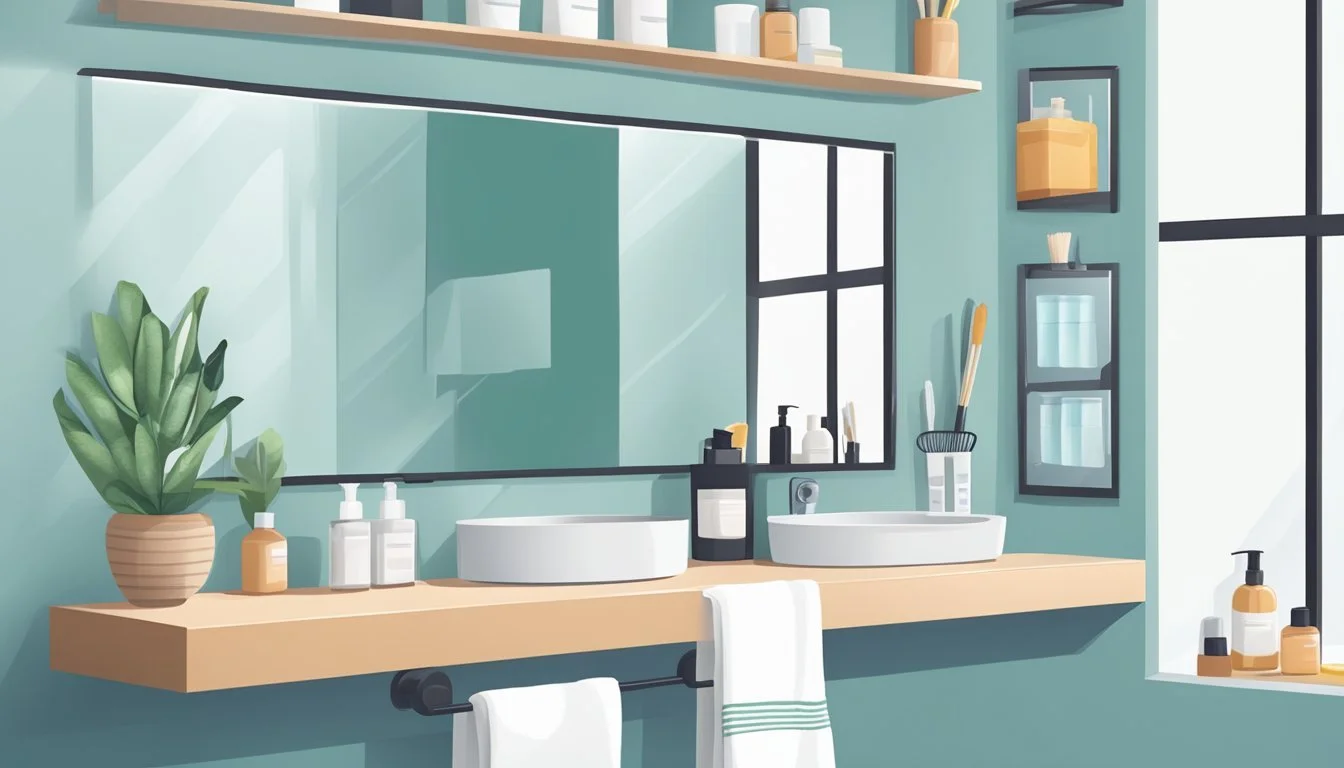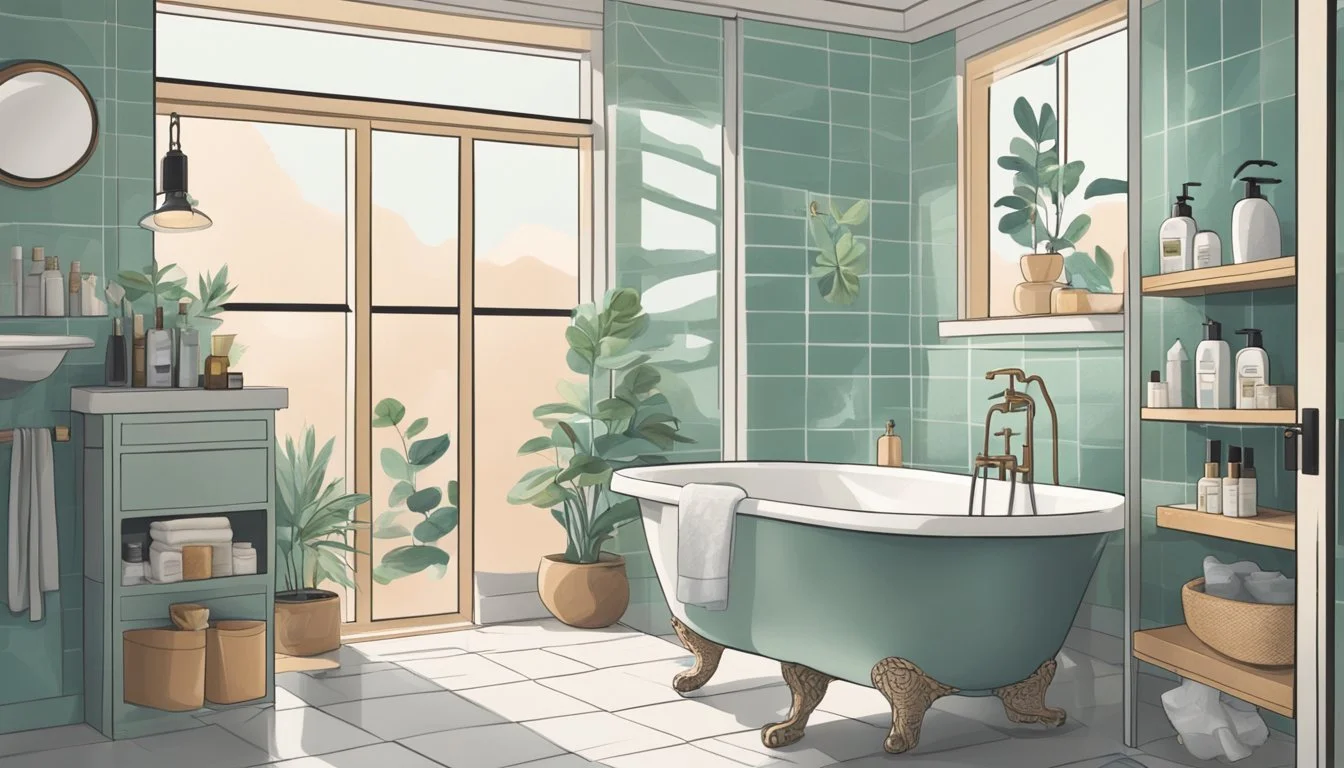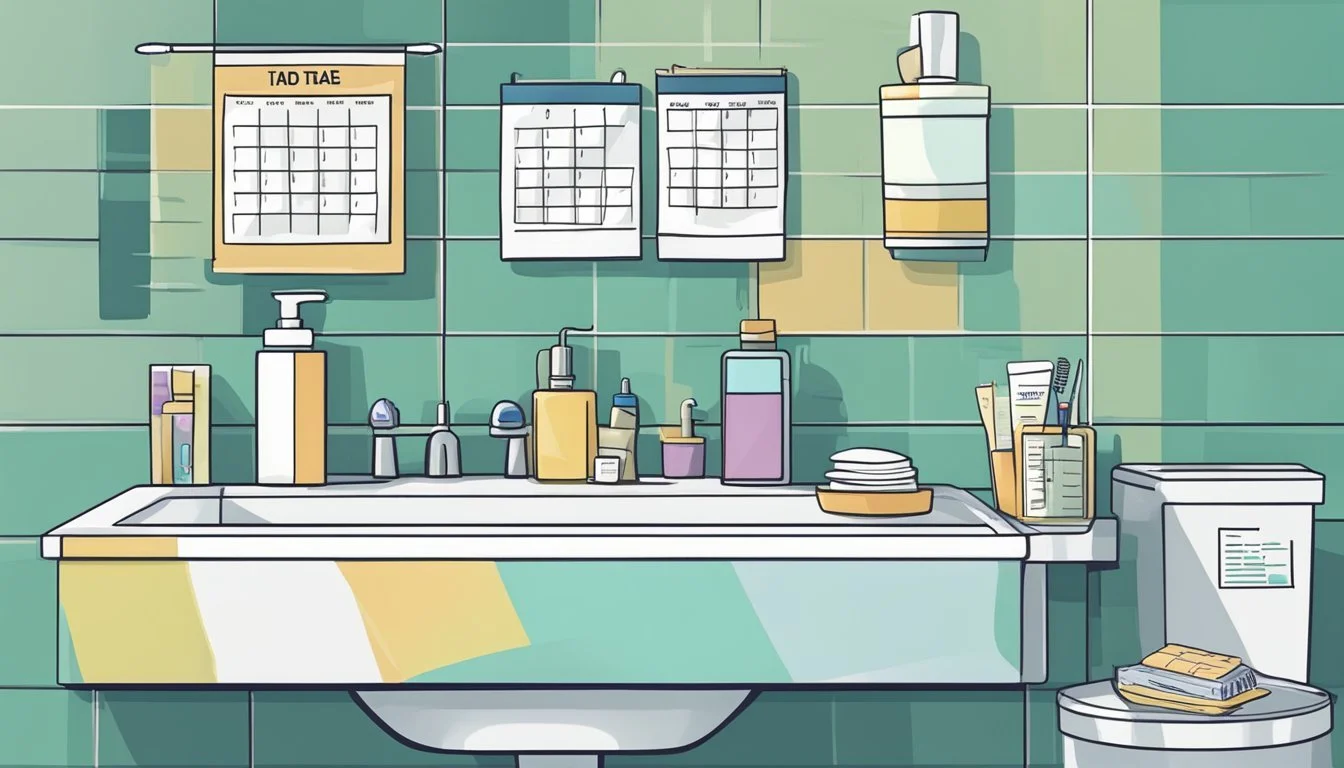7 Tips for Maintaining Personal Hygiene During BPD Low Periods
Essential Self-Care Strategies
Maintaining personal hygiene during low periods of Borderline Personality Disorder (BPD) can be challenging but is crucial for overall well-being. Individuals with BPD often experience intense emotional fluctuations that may impact their ability to care for themselves effectively. These hygiene practices not only promote physical health but can also contribute to improved mental state and self-esteem.
This article presents seven practical tips for managing personal hygiene during BPD low periods. These strategies are designed to be accessible and implementable, even when motivation and energy levels are low. By incorporating these habits into daily routines, individuals with BPD can work towards maintaining better hygiene and potentially alleviating some of the difficulties associated with low periods.
1) Create a calming hygiene routine
Establishing a soothing hygiene routine can help individuals with BPD manage their low periods more effectively. The routine should be simple and achievable, focusing on essential tasks that promote cleanliness and self-care.
Start by selecting a consistent time each day for hygiene activities. This predictability can provide a sense of structure and stability during challenging moments.
Choose gentle, pleasant-smelling products that appeal to the senses. Soft textures and calming scents can make the routine more enjoyable and less overwhelming.
Incorporate relaxation techniques into the routine. Deep breathing exercises or mindfulness practices can be integrated while brushing teeth or washing the face.
Keep the bathroom environment calm and organized. Reduce clutter and consider using soft lighting or playing soothing music to create a peaceful atmosphere.
Break down the routine into small, manageable steps. This approach can make the process less daunting and more achievable during low energy periods.
Remember that consistency is key. Even on difficult days, completing just one or two steps of the routine can help maintain a sense of accomplishment and self-care.
2) Use a soothing lavender body wash
Lavender body wash can be a calming addition to a hygiene routine during low periods. The gentle scent of lavender has been shown to promote relaxation and reduce stress.
Using a lavender-infused body wash in the shower can turn a basic hygiene task into a more soothing experience. The aromatherapy benefits may help improve mood and create a sense of calm.
For those who prefer a DIY approach, making a homemade lavender body wash is an option. Simple recipes often combine castile soap, lavender essential oil, and moisturizing ingredients like jojoba oil.
Store-bought lavender body washes are widely available and offer convenience. Look for products with natural ingredients to avoid harsh chemicals that may irritate sensitive skin.
Incorporating a lavender body wash into a hygiene routine can make showering feel less overwhelming during difficult times. The familiar scent can provide comfort and help establish a sense of normalcy.
3) Install a gentle water filter for your shower
Installing a shower filter can significantly improve your bathing experience during low periods. Harsh water can exacerbate skin and hair issues, making self-care more challenging.
Most shower filters are easy to install without professional help. Start by turning off the water supply to your shower. Remove the existing showerhead and clean the shower arm.
Attach the new filter to the shower arm, ensuring a tight seal. Then connect your showerhead to the filter. Turn the water back on and check for any leaks.
Choose a filter that removes chlorine, heavy metals, and other impurities. This can help reduce skin irritation and dryness, which is especially beneficial during BPD low periods.
Remember to replace the filter cartridge every 6 months or as recommended by the manufacturer. Regular maintenance ensures the filter continues to work effectively.
A gentle water filter can make showering more pleasant and less irritating to your skin and hair. This small change can contribute to better overall hygiene and self-care routines.
4) Practice mindful handwashing
Mindful handwashing can be an effective technique for maintaining personal hygiene during low periods associated with BPD. This practice involves focusing attention on the sensory aspects of handwashing, helping to ground individuals in the present moment.
To practice mindful handwashing, start by noticing the temperature of the water as it flows over the hands. Pay attention to the texture and scent of the soap, observing how it lathers and feels against the skin.
As you wash, be aware of the movements of your hands and fingers. Notice the sensation of rubbing palms together, cleaning between fingers, and scrubbing fingertips. Take slow, deep breaths and concentrate on the task at hand.
This mindful approach can turn a routine hygiene task into a calming, self-care ritual. It may help reduce anxiety and promote a sense of control during challenging times. Regular practice of mindful handwashing can contribute to overall hygiene habits and emotional well-being.
Remember to wash hands thoroughly for at least 20 seconds, covering all surfaces including wrists, backs of hands, between fingers, and under nails. Rinse well and dry completely with a clean towel.
5) Schedule regular bath times
Establishing a consistent bathing routine can be beneficial for individuals with Borderline Personality Disorder (BPD) during low periods. Regular bathing helps maintain physical cleanliness and can provide a sense of structure and normalcy.
Setting specific times for bathing, such as every other evening or three times a week, creates a predictable pattern. This consistency can be comforting and help anchor one's day-to-day activities.
For those struggling with motivation, scheduling bath times in advance can serve as a gentle reminder to prioritize self-care. It's important to choose realistic intervals that align with personal needs and lifestyle.
Bathing can also offer a calming sensory experience. The warm water and familiar scents of soap or shampoo may help reduce stress and anxiety commonly associated with BPD.
If full baths feel overwhelming, alternatives like quick showers or even a simple wash at the sink can be scheduled instead. The key is to maintain some form of regular hygiene practice, adapting as needed to accommodate fluctuating energy levels and emotional states.
6) Use a gentle fragrance-free moisturizer
Maintaining skin hydration is crucial during low periods of BPD. A gentle, fragrance-free moisturizer can provide comfort and care without overwhelming sensitive skin.
Fragrance-free products reduce the risk of irritation and sensory overload. This makes daily skincare routines feel more manageable and less daunting.
Look for moisturizers specifically labeled "fragrance-free" rather than just "unscented" for the best results. Many stores now offer fragrance-free alternatives in their personal care aisles.
Choose moisturizers with soothing ingredients like jojoba oil or herbal extracts. These can help nourish the skin without causing irritation.
Apply the moisturizer gently to clean skin, using upward strokes. This helps improve absorption and provides a moment of self-care.
For those with mature skin, consider products with antioxidants to address fine lines and wrinkles. Pair the moisturizer with a gentle cleanser to maintain skin health.
Using a humidifier in the home can complement moisturizer use. It increases air moisture levels, helping to prevent skin from becoming dry and dehydrated.
7) Incorporate breathing exercises into grooming
Breathing exercises can enhance the grooming experience for individuals with BPD during low periods. These exercises help reduce stress and anxiety while promoting mindfulness and relaxation.
Integrating simple breathing techniques into daily grooming routines can provide a sense of calm and focus. Before starting grooming tasks, take a few deep breaths to center yourself and prepare for self-care.
While brushing teeth or washing face, practice slow, controlled breathing. Inhale deeply through the nose for a count of four, hold for four, then exhale through the mouth for four counts.
During shower time, use the steam and warm water to facilitate deeper breathing. Focus on the sensation of breath entering and leaving the body, letting go of intrusive thoughts.
When applying skincare products or styling hair, incorporate the 4-7-8 breathing pattern. This technique can help regulate the nervous system and induce a state of relaxation.
By combining grooming activities with mindful breathing, individuals can transform their hygiene routine into a calming, self-care practice. This approach supports both physical cleanliness and emotional well-being during challenging periods.
Understanding BPD and Its Impact on Hygiene
Borderline Personality Disorder (BPD) can significantly affect daily functioning, including personal hygiene routines. The disorder's symptoms often interfere with self-care practices, creating challenges for individuals in maintaining consistent cleanliness habits.
How BPD Affects Daily Routines
BPD is characterized by intense emotions and mood swings, which can disrupt regular hygiene practices. During low periods, individuals may struggle with motivation and energy levels, making simple tasks like showering or brushing teeth feel overwhelming.
Impulsivity associated with BPD can lead to neglecting hygiene routines in favor of other activities. This can result in irregular bathing schedules or forgetting to change clothes.
The fear of abandonment and unstable self-image common in BPD may cause some to prioritize other aspects of their appearance over basic hygiene. This could manifest as focusing on makeup or clothing while neglecting fundamental cleanliness.
The Connection Between Mental Health and Hygiene
Mental health and personal hygiene are closely intertwined. Poor hygiene can exacerbate BPD symptoms by lowering self-esteem and increasing social isolation. Conversely, maintaining good hygiene can boost mood and improve social interactions.
During depressive episodes, individuals with BPD may lack the energy or motivation to engage in self-care activities. This can create a cycle where poor hygiene contributes to worsening mental health, and vice versa.
Establishing a consistent hygiene routine can provide structure and stability, which are beneficial for managing BPD symptoms. Regular self-care practices can serve as grounding techniques during emotional turmoil.
Hygiene habits can also act as indicators of mental health status for individuals with BPD and their support systems. Changes in personal care may signal the onset of a challenging period, prompting early intervention.
Strategies for Enhancing Personal Care
Implementing effective strategies can significantly improve personal hygiene routines during BPD low periods. These approaches focus on creating supportive environments and leveraging organizational tools to maintain consistent self-care habits.
Creating a Supportive Environment
A supportive environment plays a crucial role in maintaining personal hygiene during BPD low periods. Organize bathroom essentials in easily accessible locations. Place frequently used items like toothbrushes, soap, and deodorant within arm's reach.
Consider installing a shower chair or handheld showerhead for days when standing feels challenging. Keep clean towels and fresh clothes nearby to reduce barriers to cleanliness.
Soft lighting and calming colors can make the bathroom more inviting. Add plants or soothing artwork to create a pleasant atmosphere. A waterproof speaker for music or podcasts can provide distraction and motivation during hygiene routines.
Utilizing Reminders and Organizational Tools
Reminders and organizational tools can help maintain consistent hygiene habits. Set daily alarms on smartphones or use apps specifically designed for tracking self-care tasks.
Create a visual hygiene checklist and display it prominently in the bathroom. Use color-coding or stickers to mark completed tasks, providing a sense of accomplishment.
Consider using a weekly pill organizer for hygiene products. This method can help portion out items like cotton swabs, floss picks, or skincare samples, making daily routines feel more manageable.
Digital assistants can provide verbal reminders for hygiene tasks. Utilize smart home devices to set recurring reminders for brushing teeth, showering, or changing clothes.







